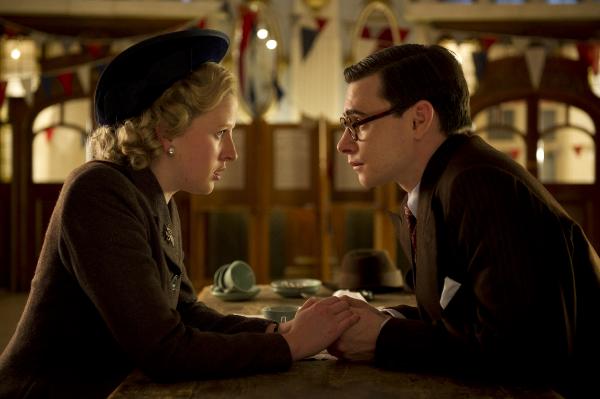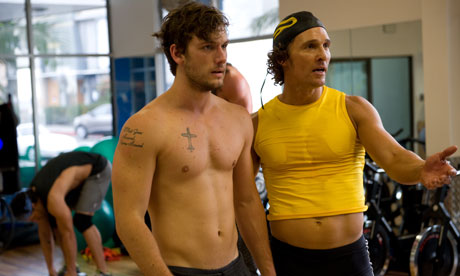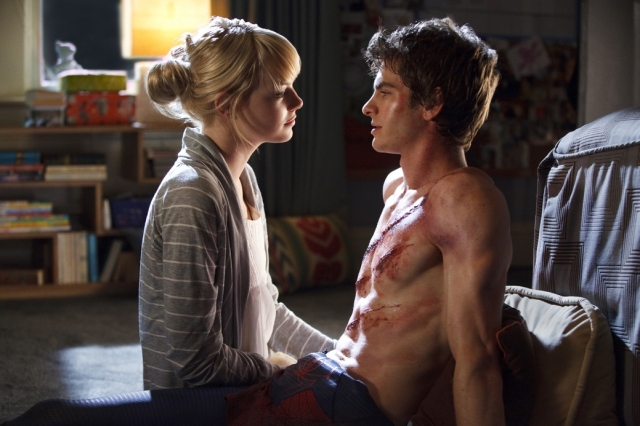
The Iron Lady
Directed by Phyllida Lloyd.
2011. Rated R, 105 minutes.
Cast:
Meryl Streep
Jim Broadbent
Alexandra Roach
Harry Lloyd
Olivia Colman
Iain Glen
Anthony Head
Nicholas Farrell
Richard E. Grant
Martin Wimbush
Roger Allam
John Sessions
Meryl Streep plays Great Britain’s first female prime minister, Margaret Thatcher. She’s aided in her portrayal by Alexandra Roach who plays the younger Margaret. Through the use of flashbacks, we follow the once most powerful woman in the world from the time shortly before she gets accepted to Oxford through the present. Those flashbacks reveal a vibrant woman with a passion for making things right, as she saw fit. We see her struggle and elbow her way into politics, essentially an all-boys club when she began. Naturally, she evolves into a hard-nosed leader who won’t take any guff from anyone. Throughout our time with her, she efforts to adjust to life out of office and without Denis (Broadbent), her beloved but deceased husband.
Some recent biopics about famous women have chosen to focus on the more tawdry details of their lives, love affairs and soap opera like melodrama, relegating what made them great to secondary status. Such is the case in both Coco Before Chanel and Amelia, both making their subjects the focal point in a love triangle more than anything else. Thankfully, The Iron Lady spares us the romance novel histrionics. Instead, we get to see the drive that made her into the Margaret Thatcher we’ve come to know. Her ascent to power and exertion of it are allowed ample breathing time. Whether we agree or disagree with her philosophies and decisions is irrelevant. What’s important is that she achieved much during her lifetime.

That’s not to say there isn’t a love story because there most certainly is. Without their courtship dominating the run-time we still get a clear understanding of how much they mean to each other. We also realize how tough her public life is on their family. Still, they are what could be described as soul mates. This gives us the current of sadness that runs through TIL. Much of the older Thatcher’s time, by extension much of Streep’s time, is spent within the lonely confines of her bedroom. She often speaks aloud to Denis, present only through her constant hallucinations. Here is where the movie almost loses us. It’s depressing watching a once-great figure stumble about her home talking to herself. She appears to struggle with the fact she’s no longer Prime Minister and wholly unable to cope with the reality that her husband has been dead some years.
As usual, Meryl Streep keeps us engaged. She again demonstrates her ability to get lost within the character and draw out both their despair and their dignity. If there is one trait most of her characters share, it’s regality. That’s certainly fitting for Thatcher. However, this is one instance where Streep didn’t do it alone. I’d be remiss if I didn’t commend Alexandra Roach. She does a very good job as the younger, more ambitious, less secure Margaret. The two performances mesh nicely. It helps that Roach bears a healthy resemblance to Streep.
Eventually, a triumphant finale is fashioned out of our hero’s post-political life. Still, it’s not as uplifting as it wants to be. It feels like a temporary victory or possibly a segue to other problems. The movie ends because it must. Some of you may cry because it is a touching moment. It just doesn’t leave us feeling particularly good about where Thatcher stands.
MY SCORE: 7.5/10






















Comment